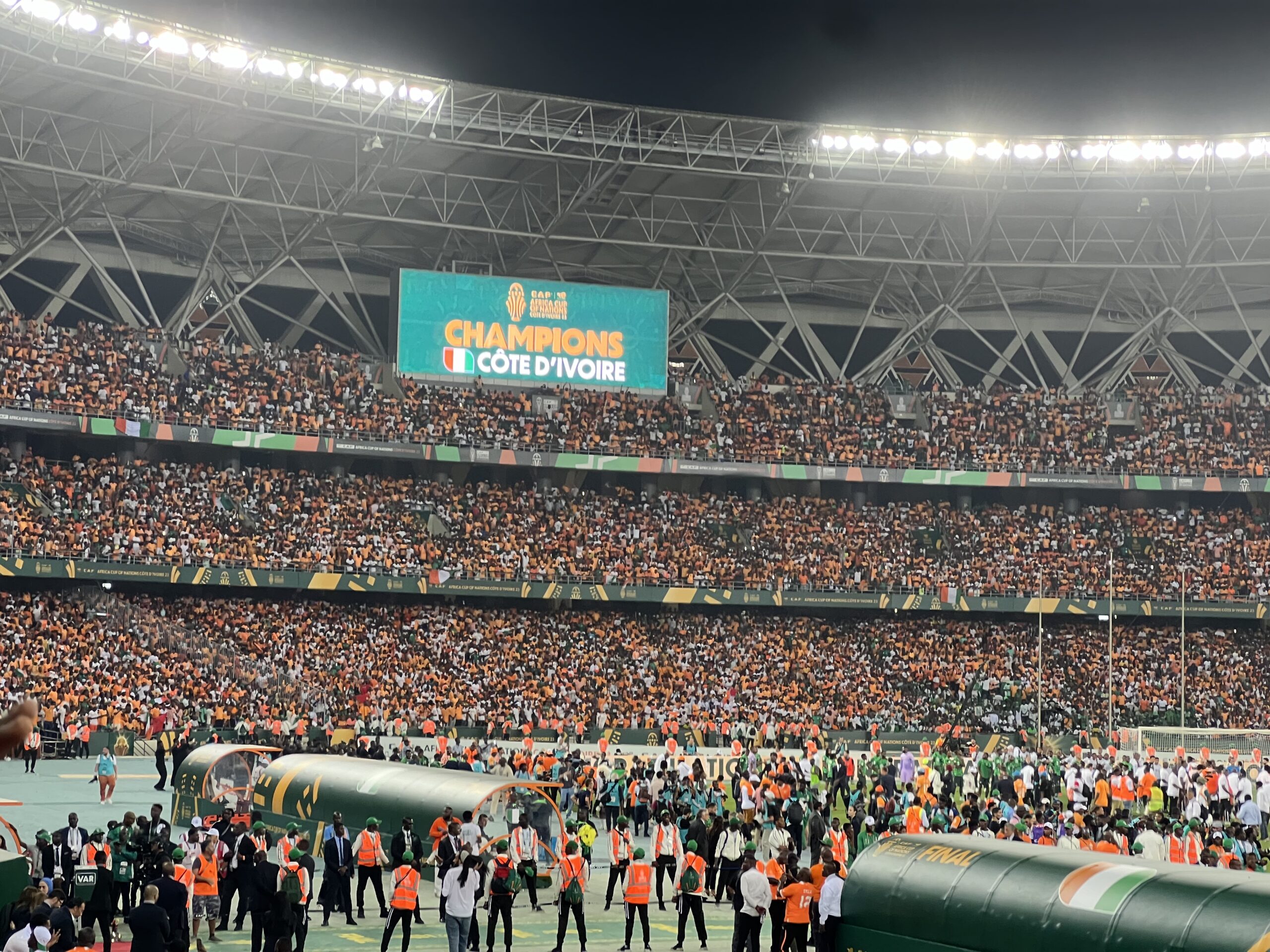By Maria de Deu
The Ivory Coast’s last month’s triumphant win of their third gold medal in the African Cup of Nations (CAN) football tournament not only united the 27 million Ivorians divided by politics and the tough economic conditions but also seems to have rallied them around their country and its leadership.
On the evening of February 11, 2024, as the referee of the final match of the 34th edition of the Africa Cup of Nations between Nigeria and Côte d’Ivoire, Mauritanian Dahane Beida, blew the final whistle, a wave of joy swept over the 27 million Ivorians.
The Ivorian people were ecstatic, they danced, and some even wept with joy. This overwhelming happiness, which at times bordered on madness, was a result of the 3rd CAN trophy that their national team, the Elephants, had just secured against Nigeria with a score of 2-1. This victory followed their previous successes in 1992 and 2015.
If there’s one thing that truly unites the Ivorians, it’s their national football team. The euphoria surrounding each victory is almost identical, from the first to the third trophy. However, the final victory on February 11, 2024, had a unique aura.
It was elusive, indescribable, and it took the entire football world on an emotional roller coaster ride. The Ivorians experienced everything from the joy of the first match to the stress and disappointment of the second and third matches. The 34th CAN presented situations that were at times magical, almost crazy, embodying the “glorious uncertainty of football.
This success in the continental tournament has further strengthened the bonds among Ivorians. Regardless of their regional affiliations, whether from the North, East, Center, or West, everyone celebrated together in a synergy like no other.
Charles Blé Goudé, the president of Cojep, a young Ivorian political party, remarked, “I was sitting in the stands with my brothers from the RHDP, the FPI, the Pdci-Rda and others without any problem.” In essence, the CAN has been a unifying force for a diverse and often pluralistic Ivory Coast, demonstrating the magical power of football to bring together even those with strong opposing views.
The question now arises: Is this 3rd trophy worth a 4th term for Ouattara?
Many Ivorians in the Ebimpé stadium didn’t hesitate to chant the name of the Ivorian head of state, Alassane Ouattara, after the Elephants’ victory. This was their way of acknowledging the monumental effort put forth by Ouattara and his government in financing and implementing this massive sporting event.
An estimated 500 billion CFA francs were allocated to the CAN, covering the construction of new sports facilities, hotels, and road infrastructure in the host cities, including Abidjan, Yamoussoukro, Bouaké, Korhogo, San-Pedro, and others.
In such circumstances, it’s only logical that any politician would want to capitalize on the positive psychological and moral impact of such a competition. Supporters of the state are using this popular achievement to strategize for the 2025 presidential elections.
The excellent organization of the Ivorian CAN has, for one of the rare times, put all Ivorians in agreement on the quality of the work carried out by the current government, regardless of their political affiliations.
Even outsiders, most of whom were impressed by the quality of the infrastructure and the hospitality of the Ivorian people, would agree.
This 3rd trophy for Côte d’Ivoire and the meticulous work done thanks to the resources provided by the head of state has certainly boosted his popularity among the Ivorian populace.
With this renewed popularity more than a year before the 2025 elections, does this give him a head start over his political adversaries for a fourth consecutive term? Only time will tell.
Translated from French by Daniel Okoth.



